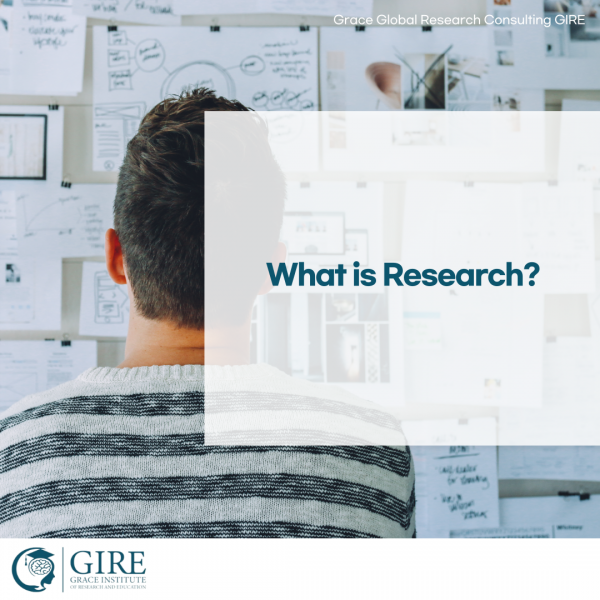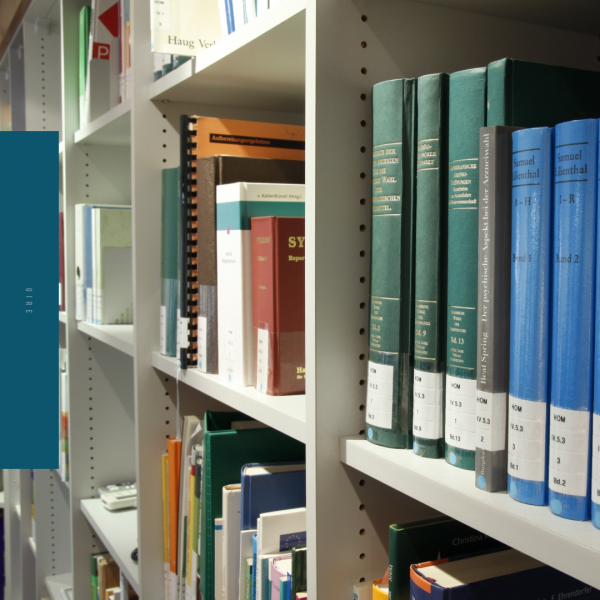|

Hello, this is GIRE, a research consulting professional institution.
Today, we will take an in-depth look at what research is and why we should conduct research.
[Etymology of research]
The English word Research, which means ‘research’, comes from the Medieval French word ‘rescherche’ which means ‘to try to find something’.
‘Rescherche’ is a combination of “re-“ and “cerchier” or “searcher” meaning “to find.”

Therefore, it refers to research or research methodology, a human activity based on the quest for knowledge. It refers to a systematic investigation that focuses on the discovery, interpretation, correction, or reaffirmation of new or existing knowledge about various aspects of the world.
[Reasons to Conduct research]
So why do we need to do research? What does it mean to ‘research’ something?
The fundamental and primary goal of research is to provide, discover, or interpret evidence for knowledge and thereby to develop methods and systems for the advancement of human knowledge.
In addition, since research provides scientific information and theories to explain the nature and characteristics of the world in which people live, it can also be said to have excellent practical applications.

Research does not simply end with research, but includes all the processes from when a scholar discovers a new fact or devises a new concept to presenting the results in a well-organized paper.
A dissertation is a sentence that scientifically and systematically describes one's thoughts on a certain subject or object. There are two English words for a dissertation, ‘theses and ‘dissertation’, which are derived from the Greek thesis, ‘to present something’, and the Latin dissertātiō, ‘way’, respectively. In other words, a thesis contains the meaning of claiming something new and suggesting a direction. Since it is not possible to visit all the people in the world and pass on knowledge one by one, it can be said that logically organizing research papers is also a very important competency.
Newton's writings are generally considered to be the first dissertation in the West. Until the 17th century, scientists published books after years of research. It was difficult to spread widely because it was information shared only within a small number of communities, and the propagation speed was quite slow. In addition, in case of wrong verification or error, there was no choice but to go through a lot of trial and error until correcting the wrong concept.
Then, in 1665, Henry Oldenburg founded the world's first academic journal <Philosophical Transactions of the Royal Society of London>, and the method of officially announcing and disseminating the results of academic research through a unique medium called 'academic journal' began. This is a method in which scientists submit manuscripts, which are then reviewed by experts and published in journals, and the basic structure of journals has not changed significantly to this day.

In particular, the thesis can be said to be the core of the field of science. Since it has public confidence and a great influence, the ability to write a well-organized thesis can be considered to be included in research skills.
This kind of research is one of the best ways to explore knowledge in modern education. Unlike in the past, which relied on simple knowledge memorization and repetitive learning, modern education is changing in the direction of cultivating critical thinking, logical analysis, and independent knowledge exploration skills. People no longer pass on knowledge piecemeal but combine the wealth of information shared over the Internet with the rapidly developing AI technology. It is an aspect that requires talented people who can recreate new things through the integration and application of convergence and complex knowledge, not just one field.

In line with this, even in the case of education and research, the purpose of creating future talents with creative thinking that can synthesize, apply, and recreate various knowledge is changing, not just the amount of knowledge. To keep up with these changes, the ability to clearly and logically analyze and communicate your thoughts and ideas is very important.
It is ‘research’ that develops these abilities, and that is why research education is an essential precedence for students.
[Benefits of Research on Students]
Let's take a look at the positive impact that research education has on students.
First, research opens the eyes of young students to facts and opinions.
In other words, by learning how to do real research, not just Wikipedia or Google searches, students can search through archives and find material that is not widely known and does not appear at the top of search engines. This is because it becomes a skill and ability, and it can be an opportunity to open your eyes to hidden facts and opinions.
Due to the nature of media, algorithms constantly provide users with biased information and perspectives. As you learn about information that is not widely known through research, students can not only address the shortcomings of these media but also have a wider perspective and broader perspective.
Second, the research develops students' ability to be 'self-sufficient'.
Through research, students can conduct more functional and in-depth research on the subject of investigation and improve their ability to find information on a specific topic. During this process, students can analyze the consensus and disagreement between scholars on a specific topic, and they can also improve their reading and writing skills by viewing documents written by scholars.
In addition, reading annotated scholarly material naturally reviews, evaluates, and synthesizes multiple sources of information, and develops critical thinking skills. Acquiring skills and knowledge through review of literature and analysis and synthesis of information is fundamental to sound research and is extremely important.
Third, research opens the way to development and prosperity for students.
It may sound a bit grandiose, but it is true. Students experience the integration of well-known and lesser-known information through research. New knowledge is gained based on the existing knowledge gathered through previous studies.
One of the essences of research is ‘continuity’. Humans acquire new knowledge through research, and the new knowledge acquired in this way is combined with existing knowledge, and new knowledge is expressed. Therefore, without research, the continuity of such knowledge is broken.
For the continuity of knowledge, the desire and understanding of research must be transcended to the next generation, and education plays a role in promoting the importance of such research, and the continuity of knowledge is perpetuated as synergies occur between research and education. Students gain new knowledge through research, realize new knowledge through the combination of knowledge, and are motivated to solve future challenges through education.
Now, I think you can feel more how important research is. Research is not simply a factor for entering a good university, but an essential part of cultivating students' self-sufficiency and motivating them to solve future challenges
|
 Click here to book
Click here to book